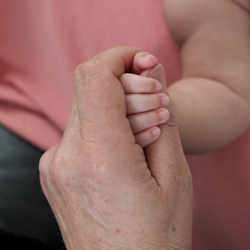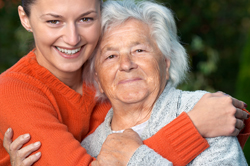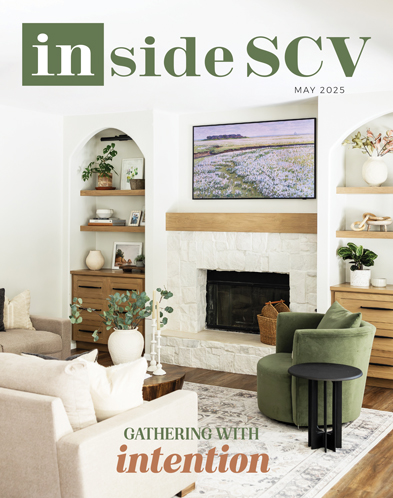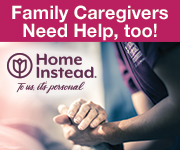HEALTH - SENIORS
Caring for Grandma
One Family's Quest for an In-home Care Solution
October, 2009 - Issue #60
 |
Just three years ago my grandmother and I would have hours-long conversations about topics ranging from childrearing to investing. Now we talk about the weather. A lot.
I'm not complaining. Because of distance and general life busyness, I only get to spend a few quality hours with her a couple of times a month.
The same cannot be said for my 28-year-old sister, who lives with my grandparents (Grandpa is doing well at 87) and is responsible for much of their daily care, including meal prep, house cleaning and - to be blunt - Grandma. Bathing and adult-diaper-changing are all on her regular to-do list. My aunt and uncle also carry a big load, but with full-time jobs and other responsibilities, they can only do so much.
And, as is the case with many families in our situation, conflict does arise. Should my sister be paid? For what, and how much? Who should be responsible for medical decisions? And, the big one: Is it time to get "outside" help? For assistance answering that question, I turned to four local Certified Senior Advisors (CSAs) for guidance.
"It's not a bad thing to be armed with information and know your options," comforted Geneva Knoles of Visiting Angels. "It's a scary process because it's unfamiliar. No one wants to make this phone call."
 |
An in-home consultation would help us decide. "We do a full physical assessment," says McNamara. "We determine skills required, and -importantly - personality style. The caregiver needs to mesh with both Grandma and Grandpa. We figure out needs. Help with eating/drinking? Mental stimulation? A chance to stay active? Together, with the family, we can then create a care plan."
The "eating" question floors me a bit. My grandmother, who once capably cooked for her family of six, can no longer safely operate a stove (Knoles suggests removing the knobs in these circumstances.). Grandma finds this knock to her independence frustrating, and the same can sometimes be said for those who are left to pick up the meal-making slack.
These days, she may even forget to eat. "As we age, our sense of taste and smell diminishes. Seniors may not be eating as much as they should because of this. You have to follow the guidelines and calorie intake specified by their physician because the wrong foods and preparation can cause a risk of obesity or malnourishment, or changes in their physical health, like blood pressure, diabetes and digestion problems. On top of that, certain medications need to be taken before eating, with food, or after eating," says Tom Christensen of Santa Clarita Valley Homemakers & Personal Attendants.
There's just so much to manage. I understand now why my normally "together" sister and aunt seem unnervingly harried. "No single family member can be in charge of caring for their parents or grandparents. It's an immense amount of stress," sympathizes Charlene Perrone of Home Instead Senior Care for Santa Clarita and Antelope Valleys. "Caring for a loved one with dementia does not get easier; family members need respite. Companies like ours fill the holes, whether it be for 90 minutes or 24 hours a day."
"Families need to know about every resource available to make this time easier," says Knoles. The Visiting Angels owner suggests that families consider community support where available. "Meals on Wheels, free or low-cost home modifications, adult day care, classes at the senior center, activity groups, transportation options... These, combined with, possibly, the help of an in-home care provider, can ensure that your sister can go back to being a granddaughter."
I agree. My sister has given up employment, educational and social opportunities to fulfill what she considers a moral obligation. We are grateful and humbled by her dedication, but I can't help but think that Grandma would be mighty peeved if she knew that Sis chose to stop attending college to take care of her.
I intend to take what I've learned back to my family. We need to have an honest dialogue about what we can do to keep Grandma at home without sacrificing my sister's (and grandfather's, and aunt's, and uncle's) wellbeing in the process.
I know the general cost ("Rates differ by demographic, but in the SCV, for bonded and insured care, it's about $18.50 to $20.50 an hour, on average," says Charlene Perrone of Home Instead). I know the goal.
And, for the first time in a long time, I know that everything is going to be Ok.
What I Learned...
About Safety
All four companies I worked with are "the real deal." All are licensed and bonded and carry additional credentials, too. But that's not always the case. Myles McNamara regularly serves as a speaker on the topic of "Homecare: Buyer Beware." While his company, Comfort Keepers (287-4200) extensively screens employees for both criminal backgrounds and caregiving expertise, less scrupulous organizations (not mentioned here) may not. You also need to be cautious about working with a company that treats employees as independent contractors. You could find yourself financially liable for an injury or without redress if something goes wrong.
About Burnout
"Some family caregivers feel like they are being held hostage in their own home. They believe that they can't leave for fear that something might go wrong, and when they do leave, they worry," says Charlene Perrone of Home Instead Senior Care (254-8701). She recommends that caregivers seek support through websites like www.caregiverstress.com and also develop a plan for respite. "Often, family caregivers don't think about the times they need a break, whether from burnout or because of an illness. You need to have backup in place, because this is a very taxing situation," she shares. An established relationship with an in-home care professional means that you can get last-minute or planned help immediately.
About Medical Skills
The more my grandmother's illness progresses, the more I wish I had gone to medical school. It's no coincidence that many in-home caregivers are retired nurses. Because many folks find the topic confusing, Homemakers' nursing staff can set up medications for those who are unable, and will meet with the patient and family to provide education on health matters. "Our staff of skilled nurses assists the patient with a plan of care, coordinating medical services, communication with the patient's physician and can assist in the procurement of home health and therapy services when needed," informs Tom Christensen of Santa Clarita Valley Homemakers & Personal Attendants (298-5010).
About the Value of "Home"
"Grandma is happier staying in familiar surroundings, but it makes it less stressful on the family, too. At home, families can relax and enjoy the memories that come with the home," says Geneva Knoles of Visiting Angels (263-2273). By Grandma continuing to stay at home, she's able to get one-on-one care, either through a professional or family caregiver, or a combination of the two. Even if she gets worse, with the help of a part time professional we'll be able to keep Grandma at home. "Taking precautions, even as simple as a home alarm system that 'bings' when a door is open to prevent Grandma from wandering outside, can make home a safe and happy place to be," says Knoles.
Active Aging Week
Monday, September 21 through Sunday, September 27
The annual event for adults over 50 encourages healthy eating, smoking cessation and exercise as methods to gain control of your health. Reminder courtesy of Foot Solutions; 702-0070
|
||||||||||||||||||||||||||||





